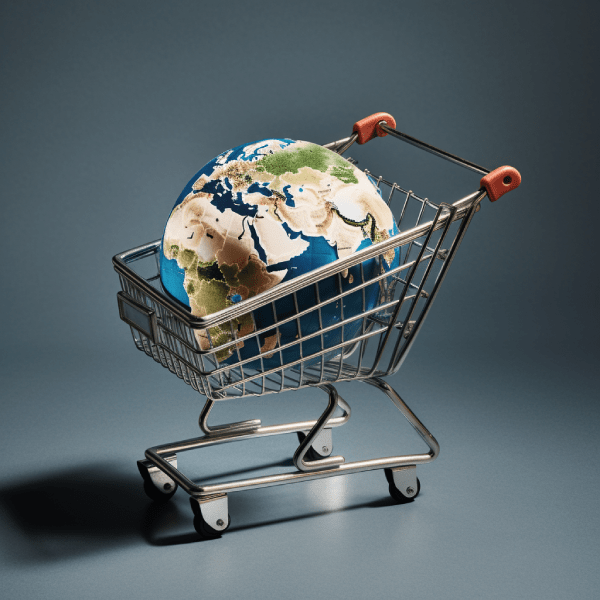Introduction
Traditional banking has been the standard way of managing finances for a long time. However, there has been a growing trend of people choosing to go unbanked. Going unbanked means individuals don’t use traditional banking services like checking accounts or credit cards.
This trend not only has benefits for individuals but also for the environment and society as a whole. In this post, we will explore the environmental and ethical benefits of going unbanked.
The environmental impact of traditional banking
Traditional banking has a significant impact on the environment. Banks consume vast amounts of energy to power their servers and branches, contributing to greenhouse gas emissions. Additionally, banks often finance environmentally harmful activities such as fossil fuel exploration, deforestation, and mining.
These activities lead to the destruction of natural habitats, loss of biodiversity, and increased pollution. Therefore, traditional banking is a significant contributor to the degradation of the environment.
Unethical practices of banks
Banks are not only environmentally harmful, but they also engage in unethical practices. Banks often prioritize profits over people and the planet, leading to financial exploitation and social inequality. They charge high fees, impose hidden charges, and engage in predatory lending practices that harm vulnerable populations.
Furthermore, banks have been involved in several financial scandals, such as money laundering and fraudulent activities, which harm their customers and society as a whole.
The advantages of going unbanked
Going unbanked has several advantages. Firstly, it reduces an individual’s contribution to the carbon footprint associated with traditional banking. By not using banking services, individuals can reduce their energy consumption and thus, their contribution to greenhouse gas emissions.
Secondly, unbanked individuals are more likely to opt for sustainable financial options, such as community banking, which invests in local communities and sustainable projects. Lastly, unbanked individuals can use alternative payment methods such as cash or cryptocurrency, which have a lower environmental impact compared to credit cards.
Alternative banking options
Going unbanked doesn’t mean giving up financial security. There are alternative banking options available that are more sustainable and ethical. These options include community banks, credit unions, and online banks that prioritize sustainability and social responsibility. By choosing these alternative options, individuals can contribute to a more sustainable and equitable financial system.
Conclusion
Going unbanked is a viable option for individuals who prioritize sustainability and ethical practices. Traditional banking has a significant impact on the environment and engages in unethical practices such as financial exploitation and social inequality.
By going unbanked and choosing alternative banking options, individuals can reduce their carbon footprint, support sustainable financial options, and contribute to a more equitable financial system.
Thought-provoking facts
- According to the World Bank’s Global Findex Database, an estimated 1.7 billion adults worldwide lack access to formal financial services, such as bank accounts and credit cards. This is known as being “unbanked.”
- According to a report by the Financial Health Network, an estimated 53 million adults in the United States, or roughly 22% of the population, are either unbanked or underbanked.
- According to a report by the European Central Bank, it was estimated that around 58 million adults in the European Union (EU) were either unbanked or underbanked in 2020. This represents about 11% of the adult population in the EU.
- In India only 40% of the population has a bank account, according to the World Bank. In sub-Saharan Africa, only 43% of adults have a bank account.
- The rise of digital banking and mobile payment platforms is also contributing to the unbanked trend. For example, in Kenya, the mobile payment platform M-Pesa has helped millions of people access financial services without the need for a traditional bank account.
- The rise of cryptocurrency is also contributing to the unbanked trend. According to a survey by Finder, an estimated 17.4 million Americans own cryptocurrency, with 5% of respondents saying they use it as their primary form of payment. Cryptocurrency offers an alternative to traditional banking and payment systems and can be particularly appealing to those who are unbanked or underbanked.
- The COVID-19 pandemic has accelerated the trend of going unbanked, as more people are turning to digital and contactless payment methods. In the United States, a survey by the National Retail Federation found that 67% of consumers use contactless payments, and 63% use mobile payments.
- A survey conducted by the American Bankers Association (ABA) found that the top reasons why people go unbanked in the United States are a lack of funds to meet minimum balance requirements, a distrust of banks, and a belief that banking fees are too high.
While there are various reasons why people choose to go unbanked, including a lack of trust in the banking system, high fees, and a preference for cash, the trend is also driven by a desire for more sustainable and ethical financial options.
By going unbanked and choosing alternative banking options, individuals can support sustainable and community-oriented financial institutions that prioritize social responsibility and environmental sustainability.



